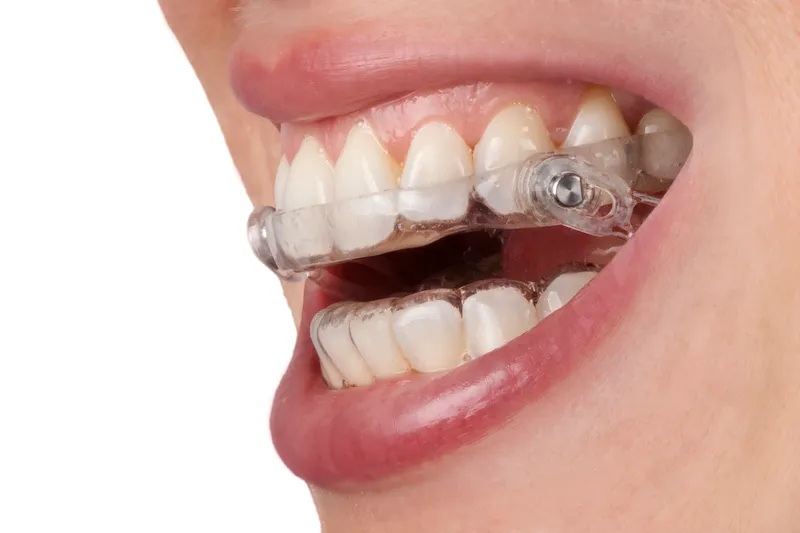In the UK, snoring is a common issue that affects many individuals, disrupting sleep quality and overall well-being. Various snoring remedies offer relief by addressing the root causes of snoring, from lifestyle adjustments to medical interventions. This article delves into some of the most effective snoring solutions available in the UK, including over-the-counter devices, lifestyle changes, and when necessary, professional medical advice. By exploring these options, individuals can find a tailored solution that enhances their sleep and health.
Understanding the Causes of Snoring
Snoring is a common condition that can affect anyone, although it occurs more frequently in men and individuals who are overweight. While it is often dismissed as a mere nuisance, snoring can indicate more serious health issues. Understanding the underlying causes of snoring can help in finding effective treatments and mitigating potential health risks.
The sound of snoring occurs when airflow is obstructed in some way while sleeping. The tissues in the upper airway touch each other and vibrate, producing the common snoring sound. This section will explore the common reasons for snoring, the anatomy involved, and the risk factors that exacerbate the condition.
Identifying the cause of snoring involves looking at various factors, including physical anatomy, lifestyle choices, and health conditions. A comprehensive understanding can lead to targeted treatments that not only alleviate snoring but also improve overall health and quality of sleep.
Common Reasons for Snoring
Several common factors can contribute to snoring. One of the primary reasons is the relaxation of muscles in the throat during sleep. When these muscles relax too much, they can partially block the airway, leading to snoring. Lifestyle factors, such as alcohol consumption, smoking, and being overweight, can exacerbate this muscle relaxation and increase the likelihood of snoring.
Another common reason for snoring is nasal congestion. Conditions like allergies, sinus infections, or a deviated septum can obstruct airflow through the nose, forcing the person to breathe through their mouth. Mouth breathing, in turn, increases the chances of snoring.  Sleeping position also plays a role; for example, sleeping on the back can cause the tongue to fall backward and block the airway, leading to snoring.
Sleeping position also plays a role; for example, sleeping on the back can cause the tongue to fall backward and block the airway, leading to snoring.
Additionally, anatomical factors such as enlarged tonsils, a long uvula, or a thick soft palate can narrow the airway and contribute to snoring. People with these conditions may experience persistent snoring regardless of other external factors.
The Anatomy of Snoring
The anatomy of the upper airway is crucial in understanding why and how snoring occurs. The primary structures involved are the soft palate, uvula, tonsils, tongue, and the walls of the throat. These structures can vibrate when air passes over them during sleep, producing the snoring sound.
The soft palate is the muscular part at the back of the roof of the mouth. When it relaxes during sleep, it can partially obstruct the airway. The uvula, a small fleshy piece of tissue that hangs from the soft palate, can also contribute to snoring if it is elongated or thickened.
The tonsils and adenoids, located in the back of the throat, can be enlarged, especially in children or those with chronic infections. These enlarged tissues can reduce the airway’s diameter, causing turbulent airflow and snoring.
Furthermore, the tongue can play a significant role. In some people, the tongue can relax and fall backward, blocking the airway. This is particularly common in individuals with larger tongues or those who lack adequate muscle tone in the tongue and surrounding areas.
Risk Factors for Snoring
Several risk factors can increase the likelihood of snoring. Obesity is one of the most significant risk factors, as excess weight, particularly around the neck, can put pressure on the airway and restrict airflow.
Age is another critical factor. Muscle tone in the throat tends to decrease with age, making it more likely for tissues to collapse and cause snoring. Men are more prone to snoring than women, although the risk for women increases after menopause.
Alcohol and sedative use can also increase snoring. These substances relax the muscles in the throat, making it easier for the airway to become obstructed. Smoking irritates the mucous membranes in the airway, leading to inflammation and congestion, which can also contribute to snoring.
Finally, genetic factors can play a role. If there is a family history of snoring or obstructive sleep apnea, you may be more likely to experience these issues. Understanding these risk factors can help in making lifestyle changes and seeking appropriate medical advice to manage snoring effectively. For more information on related topics, be sure to check out our other articles that delve deeper into sleep disorders, their treatments, and overall oral health.
Lifestyle Changes to Reduce Snoring
Snoring is a common issue that can affect the quality of sleep for both the person snoring and their partner. While there are various medical treatments available, making certain lifestyle changes can significantly reduce or even eliminate snoring. In this article, we’ll explore dietary adjustments, the importance of exercise and weight management, and provide some sleeping position tips to help minimize snoring. It’s essential to understand that snoring can be a symptom of underlying health issues such as sleep apnea, so consulting with a healthcare professional is always a good idea. However, incorporating these lifestyle changes can be a great first step towards achieving better sleep quality and overall health.
Dietary Adjustments
One of the easiest ways to reduce snoring is by making dietary adjustments. Certain foods and drinks can contribute to snoring by relaxing the throat muscles or causing inflammation in the nasal passages. For instance, consuming alcohol, especially before bed, can relax the muscles in the throat and increase the likelihood of snoring.
- Avoid Alcohol: Refrain from consuming alcohol at least 2-3 hours before bedtime.
- Eat Light: Avoid heavy meals and dairy products close to bedtime as they can increase mucus production.
- Stay Hydrated: Keeping well-hydrated helps maintain the moisture in your nasal passages, reducing the chances of snoring.
Studies have shown that adopting a diet rich in fruits, vegetables, and lean proteins can help reduce inflammation and promote better respiratory health. Incorporating these dietary changes can make a significant difference in the quality of your sleep.
Exercise and Weight Management
Regular exercise and maintaining a healthy weight are crucial for reducing snoring. Excess weight, especially around the neck, can put pressure on the airway, causing it to narrow and leading to snoring. Even a small reduction in weight can make a big difference.
- Cardio Exercises: Activities like walking, running, and swimming can improve cardiovascular health and help maintain a healthy weight.
- Strength Training: Incorporate exercises that strengthen the muscles in the throat and neck to reduce snoring.
- Consistency: Aim for at least 30 minutes of moderate exercise most days of the week.
Research indicates that physical activity not only helps with weight management but also improves muscle tone, which can prevent the airway from collapsing during sleep. Therefore, incorporating regular exercise into your daily routine can be highly beneficial.
Sleeping Position Tips
Your sleeping position can greatly impact your likelihood of snoring. Certain positions can cause your tongue and soft palate to collapse to the back of your throat, obstructing the airway and leading to snoring. Here are some tips to improve your sleeping position:
- Sleep on Your Side: Sleeping on your back can cause the tongue to fall back into the throat, increasing snoring. Try sleeping on your side instead.
- Elevate Your Head: Elevating your head using extra pillows or a specialized pillow can help keep your airways open.
- Use a Body Pillow: A full-length body pillow can help maintain a side-sleeping position throughout the night.
Using these tips can help to alleviate snoring by promoting better airway alignment and reducing the risk of airway obstruction. Additionally, certain devices, such as anti-snore pillows and nasal strips, can also assist in maintaining a good sleeping position.
Incorporating these lifestyle changes can be an effective and natural way to reduce snoring and improve overall sleep quality. However, if snoring persists, it may be indicative of a more serious condition, and seeking professional medical advice is recommended. For more information on related topics, check out our other articles to continue your journey towards better sleep health.
Medical and Professional Remedies
When it comes to addressing dental issues, various medical and professional remedies are available, ranging from over-the-counter solutions to complex surgical options. Understanding these choices can be crucial in making informed decisions about your oral health. This section delves into the various remedies professionally recommended for dental care.
It’s important to recognize that while some remedies can be managed at home with over-the-counter products, others require professional intervention. Each remedy has its specific strengths and weaknesses, tailored to different conditions and severities. Here, we explore the spectrum of medical and professional remedies that can help maintain and restore oral health.
Over-the-Counter Solutions
Over-the-counter (OTC) solutions offer a convenient and accessible way to manage minor dental issues. These products are usually the first line of defense against common dental problems like toothaches, sensitivity, and mild gum disease. They include pain relievers, antiseptic mouthwashes, and fluoride toothpaste, which can help alleviate discomfort and prevent further complications.
Studies have shown that fluoride toothpaste is effective in reducing cavities and strengthening tooth enamel. Antiseptic mouthwashes can help control plaque and gingivitis, providing an added layer of protection against bacteria. Pain relievers like ibuprofen and acetaminophen can offer temporary relief from pain and inflammation.
However, while OTC solutions can be effective for minor issues, they are not suitable for more severe conditions. It’s essential to consult with a dental professional if symptoms persist, to ensure that you receive the appropriate treatment.
Prescribed Treatments
For more serious dental conditions, prescribed treatments may be necessary. These treatments are often more potent and specifically tailored to address the underlying issues. Common prescribed treatments include antibiotics for infections, stronger pain medications, and prescription-strength fluoride treatments.
Antibiotics are particularly useful in treating dental infections that can cause abscesses or severe tooth pain. A dental professional will prescribe these medications to target specific bacteria and reduce the infection effectively.
In addition, prescription-strength fluoride treatments are sometimes necessary for patients with a high risk of cavities. These treatments can be in the form of gels, mouth rinses, or varnishes applied directly to the teeth to prevent decay.
It’s crucial to follow the prescribed regimen and dosage given by your dentist or doctor to ensure the effectiveness of the treatment and to avoid any potential side effects.
Surgical Options
In cases where dental issues are too severe to be managed with OTC or prescribed treatments, surgical options may be required. These procedures range from root canal therapy to dental implants and bone grafting. Surgical interventions are often necessary for restoring function and aesthetics in advanced dental conditions.
Root canal therapy is a common procedure used to save a tooth that is severely decayed or infected. During this treatment, the infected pulp is removed, and the inside of the tooth is cleaned and sealed to prevent further infection. This procedure is highly effective in preserving the natural tooth.
Dental implants represent another advanced solution, particularly for tooth loss. Implants provide a permanent and durable replacement for missing teeth. They are surgically placed into the jawbone and act as a foundation for artificial teeth, offering a natural look and feel.
For patients experiencing significant bone loss, bone grafting may be necessary. This surgical procedure involves adding bone material to the jaw to create a stable foundation for dental implants or other restorative treatments. Bone grafting not only supports dental function but also helps in maintaining the facial structure.
Each of these surgical options comes with its own set of benefits and risks, which should be thoroughly discussed with your dental professional. If you found this article helpful, consider exploring our other articles for more in-depth insights into maintaining optimal oral health.
Common Questions About Snoring Remedies in the UK
Find answers to commonly asked questions about effective snoring remedies available in the UK to help secure a better night’s sleep.
What are some popular over-the-counter remedies for snoring in the UK?
In the UK, popular over-the-counter remedies for snoring include nasal strips, which help widen the nostrils and improve airflow, throat sprays to lubricate tissues and reduce vibrations, and anti-snore pillows designed to encourage sleeping in a position that reduces snoring. It is advisable to try different products to find the one that works best for your specific needs.
Are there any lifestyle changes that can help reduce snoring?
Yes, several lifestyle changes can significantly impact snoring. Reducing body weight, avoiding alcohol close to bedtime, sleeping on your side, and maintaining regular sleep patterns can all help decrease snoring intensity. Additionally, quitting smoking and avoiding heavy meals late at night can also contribute to reducing snoring episodes.

My name is Salman Kapa, a 73-year-old expert in bone regeneration and dental implantology. With decades of experience in the field, I am dedicated to advancing our understanding of oral health and hygiene. Through my research and writing, I aim to contribute to the development of innovative solutions in dental care.




